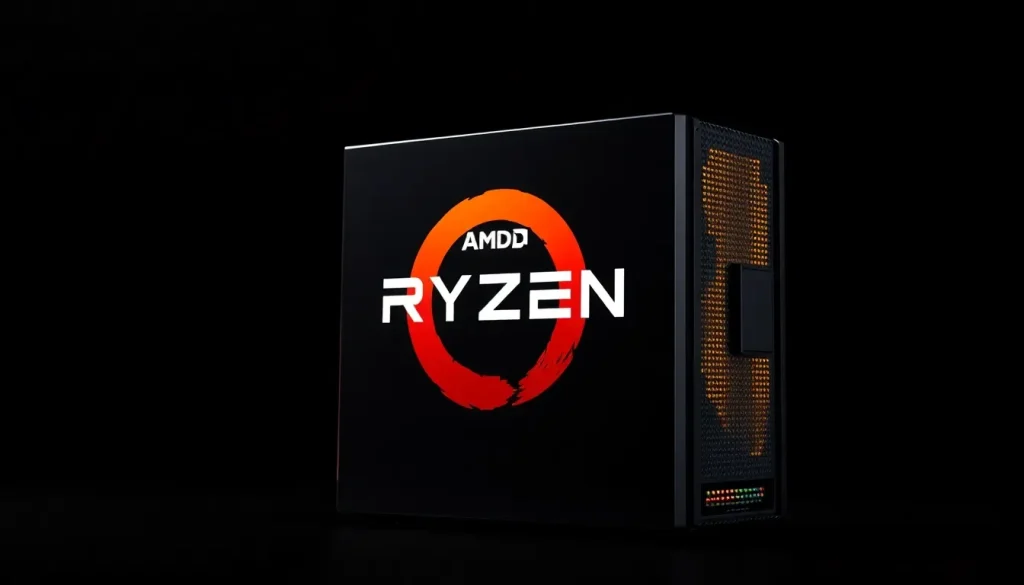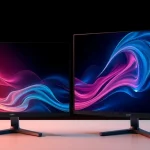AMD Ryzen X3D at Risk of Sales Ban

The world of semiconductor technology is constantly evolving, with companies like AMD pushing the boundaries of performance and innovation. However, a recent legal challenge has put a spotlight on AMD's Ryzen X3D processors, raising questions about their future in the market. Let's dive into the implications of this patent dispute and what it could mean for AMD and its customers.
Understanding the X3D technology in AMD processors
The AMD Ryzen X3D processors are notable for their innovative use of stacked 3D L3 cache technology. This unique architecture enables significant improvements in processing speed and efficiency, particularly in gaming and high-performance computing tasks. By stacking cache memory, AMD reduces latency and increases data access speeds, leading to a more responsive computing experience.
However, this cutting-edge technology has drawn scrutiny due to a patent infringement lawsuit filed by Adeia, a company specializing in semiconductor technology. The outcome of this legal battle could have serious ramifications for AMD and its Ryzen X3D lineup.
What led to Adeia's lawsuit against AMD?
Adeia's legal action against AMD stems from allegations of patent infringement concerning the technology used in the Ryzen X3D processors. The company claims that AMD has utilized ten of its patents without authorization, which are crucial for the hybrid silicon link technology that underpins the X3D architecture.
Specifically, Adeia alleges that:
- Seven patents relate to hybrid linking technology.
- Three patents pertain to advanced node technology.
This is not the first time Adeia has taken legal action against a tech company. In 2023, it reached a settlement with NVIDIA over similar patent disputes. Such actions highlight Adeia's strategy as a so-called "patent troll," focusing on licensing and legal claims rather than innovation.
The stakes for AMD and the Ryzen X3D processors
If negotiations do not yield a resolution, the legal proceedings could lead to a lengthy and costly trial. Moreover, Adeia may seek a preliminary injunction to halt sales of the Ryzen X3D processors, which would severely impact AMD's market position.
The Ryzen X3D processors have been a game-changer for AMD, helping the company establish itself as a leader in gaming performance. A sales ban could jeopardize AMD's revenue, especially considering the importance of these processors across various product lines, including:
- Desktop CPUs
- Laptop processors
- Server solutions
Such a scenario could leave AMD in a precarious financial situation, as the company relies heavily on the success of its Ryzen line to compete with rivals like Intel.
Potential strategies for AMD in the face of litigation
AMD has several options in responding to this lawsuit, each with its own set of risks and benefits.
- Pursue litigation: If AMD believes it has not infringed on any patents, it may choose to fight the case in court. This could potentially clear its name but also lead to significant legal costs.
- Negotiate a settlement: If AMD is uncertain about the strength of its legal position, it may opt to negotiate a licensing agreement with Adeia. This could allow AMD to continue selling its processors without interruption.
The decision AMD makes will likely depend on a thorough assessment of its legal standing and the potential impact on its business.
Industry implications of the AMD vs. Adeia case
This legal battle underscores broader issues within the technology industry, particularly regarding patent rights and innovation. Companies like Adeia, which focus on patent enforcement rather than product development, can significantly affect how businesses operate in this space.
Industry experts are watching closely, as the outcome of this case could set a precedent for how patent disputes are handled in the semiconductor field. A ruling in favor of Adeia might embolden other companies to pursue similar legal actions, potentially stifling innovation by creating a more litigious environment.
What the future holds for AMD and its Ryzen processors
As AMD navigates this legal challenge, its future in the processor market remains uncertain. The company must balance the need to protect its innovative technologies with the imperative to maintain its competitive edge in the marketplace.
For consumers and tech enthusiasts, the potential impact of this lawsuit is substantial. The Ryzen X3D processors have garnered acclaim for their performance, and any disruption to their availability could affect many consumers relying on them for gaming and productivity tasks.
For a deeper understanding of AMD's ongoing challenges, including this patent dispute, check out this insightful video that delves into the complexities of the situation:
In conclusion, the patent litigation involving AMD and Adeia is a pivotal moment for the semiconductor industry. As the legal proceedings unfold, their impact will be felt across the technology landscape, influencing not only AMD's business strategies but also the future of innovation in the sector.




Leave a Reply